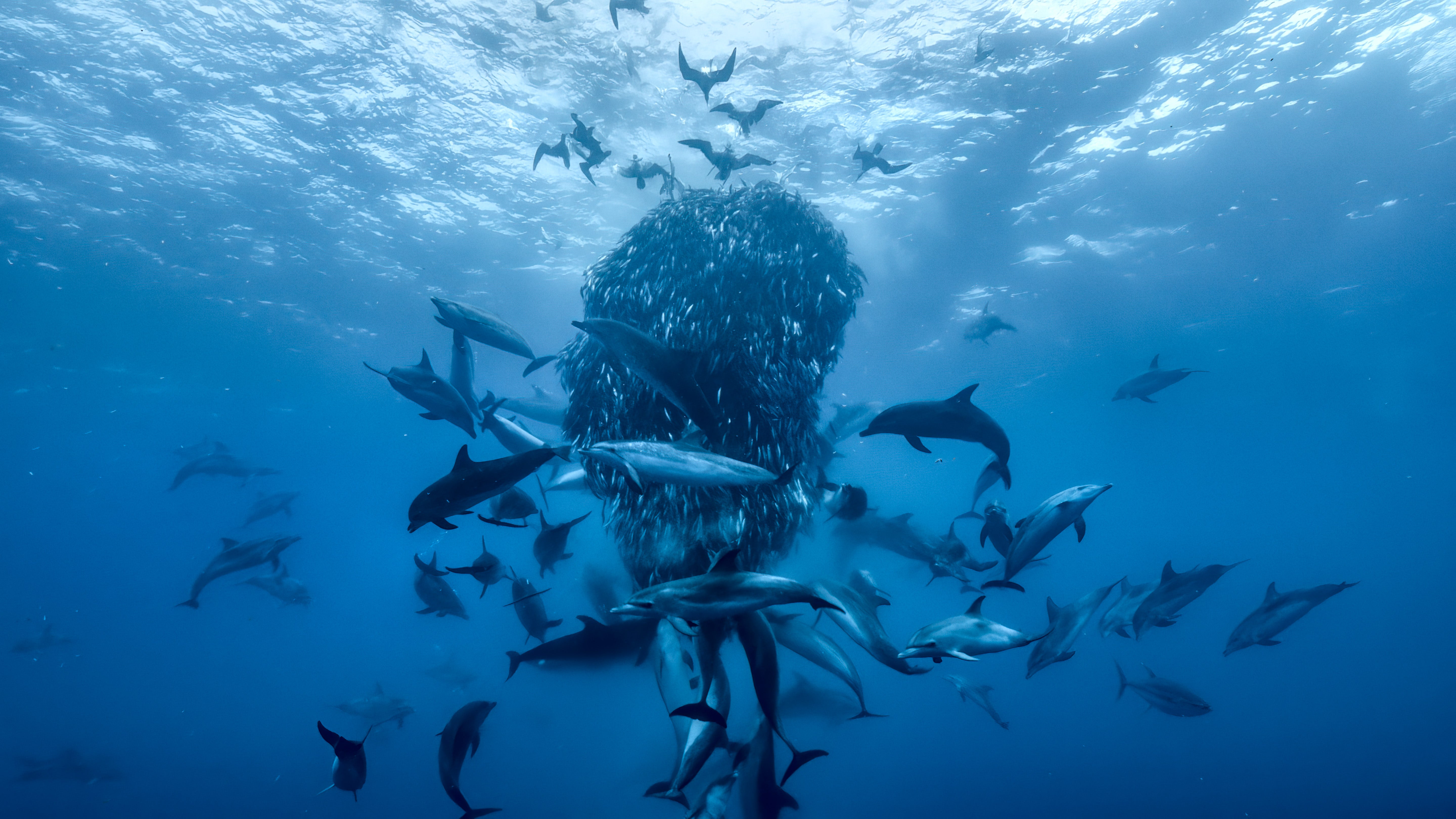
Sir David Attenborough is to release in the coming weeks a landmark feature film, Ocean, which takes viewers on a breathtaking journey around the world’s seas and oceans, and highlights their importance in the preservation of our planet.
The film is set to be released in cinemas on 8 May - the same day as the naturalist’s 99th birthday - before it is available to stream on Disney+ and Hulu later this year.
Presented in-person by Attenborough from a series of striking locations around the British Isles, the film includes stunning shots of coral reefs, kelp forests, and the open ocean from around the world.
Ocean is also a deeply personal film, with Attenborough describing how his lifetime has coincided with a “great age of ocean discovery”.
“After living for nearly 100 years on this planet - I now understand that the most important place on this planet is not on land, but on sea,” he tells viewers.
“Through the course of my life we have been on a voyage of ocean discovery, and only now do we understand what it means for our world.”
The sea is not so different to the land, Attenborough finds, with underwater mountains stretching across the deep oceans that create vital currents that support ecosystems. Kelp forests and seagrass meadows, meanwhile, are shown to operate similarly to the world’s terrestrial forests.
These ocean plant systems also absorb more carbon dioxide than the world’s rainforests, with Attenborough accordingly calling the ocean as “our planet’s life support system - our greatest ally against climate catastrophe”.
But he also warns that the world’s seas are “at a crossroads”, with humanity “draining the life from our ocean”.
Shocking images of trawler fishing, seen in high definition from the ocean floor and in striking detail from space, reveal just how damaging human interactions with the world’s oceans have become.
We see fisherman sweeping mounds of dead fish back into the sea, with only a small share of the trawled catch actually sold on.
Viewers are also shown coral reef bleaching in striking high definition, and vast factory ships in the Antarctic that dredge up krill to make animal feed.
Attenborough describes how such factory ships are sometimes labelled “sustainable” - but in actual fact scientists now know that their activities are risking the collapse of the entire Antarctic ecosystem.

At its core, however, Ocean has a message of hope, with filmmakers exploring inspirational stories from around the world to detail just how strikingly the ocean can recover, even when it is thought all is lost.
The Papahānaumokuākea Marine National Monument in Hawaii has provided a lifeline to endangered albatrosses, for example, while a reserve in the French Mediterranean has shown how even the most overfished sea in the world can be restored to full health.
When Attenborough was younger, it was thought that the world’s whale population might never recover. But with new global agreements to protect the world’s largest ocean mammals, whale populations have recovered to a point not seen before in Attenborough’s lifetime.
“The ocean can recover faster than we can ever imagine: It can bounce back to life,” says Attenborugh.
“We have been given a lifeline, it can thrive beyond anything anyone alive has ever seen.”
The film’s release on May 8 has also been timed to appear ahead of World Ocean Day on 8 June, as well as June’s UN Ocean Conference 2025 in Nice, France, where it is hoped a new agreement can be reached to conserve and sustainably use the oceans.
How the climate crisis will push up prices for your Easter chocolate
Wildfires grow to hundreds of acres after North Carolina lifts burn ban
Australian PM contender’s run unravels over climate crisis question
Chinese company announces another huge advance in EV battery technology
Why hundreds of koalas are being shot dead from helicopters in Australia
WH working to end habitat protections for endangered animals, environmentalists say







